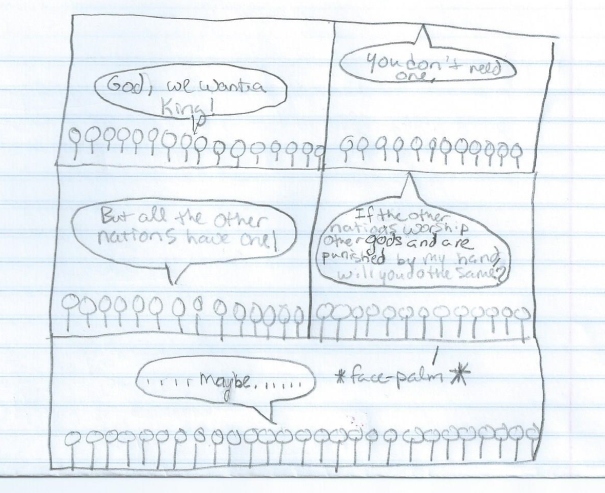This weekend, I went to a sleepover with some of the ladies in my Christian fellowship at the home of a staff member. We had a Bible study on Matthew 13: 44.
“The kingdom of heaven is like treasure hidden in a field, which someone found and hid; then in his joy he goes and sells all that he has and buys that field.”
After discussing the meaning of the passage, we began discussing the things that we were not willing to let go of for God. We talked about things that we wanted and weren’t willing to give up for the kingdom, the greatest treasure of all. After that, we went through the movie collection and chose The Little Mermaid. Listening to Ariel sing “Part of Your World” made me think of the discussion from the Bible study. Here’s a small sample:
“Look at this stuff
Isn’t it neat?
Wouldn’t you think my collection’s complete?
Wouldn’t you think I’m the girl
The girl who has everything?”
Ariel talks about everything she has. She would never be willing to give these things up. She has everything she needs and more, but later in the song, she says this:
“But who cares?
No big deal
I want more”
Ariel is always looking for more things to make her happy. She doesn’t care that she has everything she needs right there under the sea. She is always looking for things from a world in which she doesn’t really belong. Of course my brain would drift to these thoughts about a discussion on materialism and letting go of things. It also reminded me a lot of our discussion in class about Israel wanting a king.
Then all the elders of Israel gathered together and came to Samuel at Ramah, and said to him, “You are old and your sons do not follow in your ways; appoint for us, then, a king to govern us, like other nations.” 1 Samuel 8:4-5
Israel had the God of the universe for their king, but like Ariel, they were too blind to see what they had. When we talked about this in class, I made a little comic in my notebook. Disclaimer: I was not gifted with skills in art.
Here’s a better look at the conversation, in case you can’t read it.
Israelites: “God, we want a king.”
God: “You don’t need one.”
Israelites: “But all the other nations have one!”
God: “If the other nations worship other gods and are punished by my hand, will you do the same?”
Israelites: “…maybe…”
God: *face-palm*
This is the way I imagine this conversation going. It’s not as if face-palms were a thing in Biblical times, but it must have been about how God was feeling at this point. This was basically the Israelites’ way of saying what Ariel says about everything she has in “Part of Your World”: “But who cares? No big deal. I want more.”
So how does all of this go back into the conversation during Bible study at the sleepover? Ariel wasn’t meant to be on land, but it was a dream she wouldn’t let go of for the sake of her family and the life she was given. She was so absorbed by her thoughts and ideas about the human world, most of which we know are lies, that she collected many pretty things and went in search of something that likely wasn’t worth it. Disney, of course, made it a happy ending for the sake of the small children that watch it. In the end of Hans Christian Anderson’s original version, Ariel jumps into the sea and becomes seafoam, committing suicide because she can’t kill her prince to become a mermaid again after he chooses someone else. She gives up everything for something that was never going to make her happy.
In the same way, we as humans often replace God with other things because we think they will make us happy. We avoid the fact that happiness is a temporary emotion based on circumstances, while joy is a permanent state of being based on God. Simply put, nothing on earth can give us what we’re looking for. Like Ariel, we will always be searching for the next pretty thing. The only other choice is to be willing to give up everything we have for God, the one treasure worth seeking out. After all, He already gave everything for us.
“But God proves his love for us in that while we still were sinners Christ died for us.” Romans 5:8
